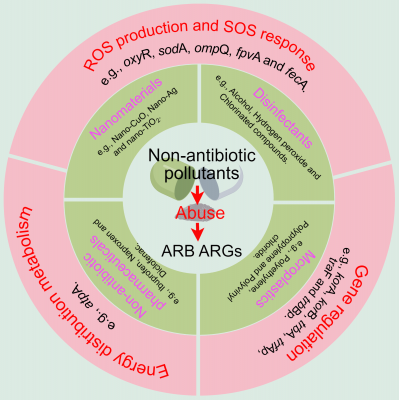Newswise — Researchers from Hangzhou Normal University, et al. have conducted a review entitled “A critical review of antibiotic resistance genes transmission driven by non-antibiotic pollutants: roles and molecular mechanisms”. This review was published in Frontiers of Environmental Science & Engineering, Volume 19, Issue 9.
Antibiotic resistance genes (ARGs) pose severe threats to public health and ecological stability, with their transmission accelerated by both antibiotics and non-antibiotic pollutants. Non-antibiotic pollutants such as nanomaterials, disinfectants, non-antibiotic pharmaceuticals, microplastics (MPs) and other emerging substances (e.g., artificial sweeteners, ionic liquids) are widely present in environments like wastewater treatment plants (WWTPs), farms and landfills, and have been confirmed to promote ARGs dissemination, especially through conjugative transfer. The molecular mechanisms involve inducing bacterial oxidative stress, enhancing cell membrane permeability, activating SOS response, upregulating plasmid-related genes and redistributing energy metabolism to increase ATP synthesis. Notably, different pollutants exhibit varying effects on ARGs transfer frequency depending on factors like concentration, structure and environmental conditions. This review systematically summarizes the roles and regulatory mechanisms of non-antibiotic pollutants in ARGs transmission, and proposes future research directions including investigating combined effects of multiple pollutants, focusing on complex microbial communities, exploring phage-mediated transduction and developing novel control technologies.
For more detailed information, the full paper is available at: https://doi.org/10.1007/s11783-025-2043-2.

